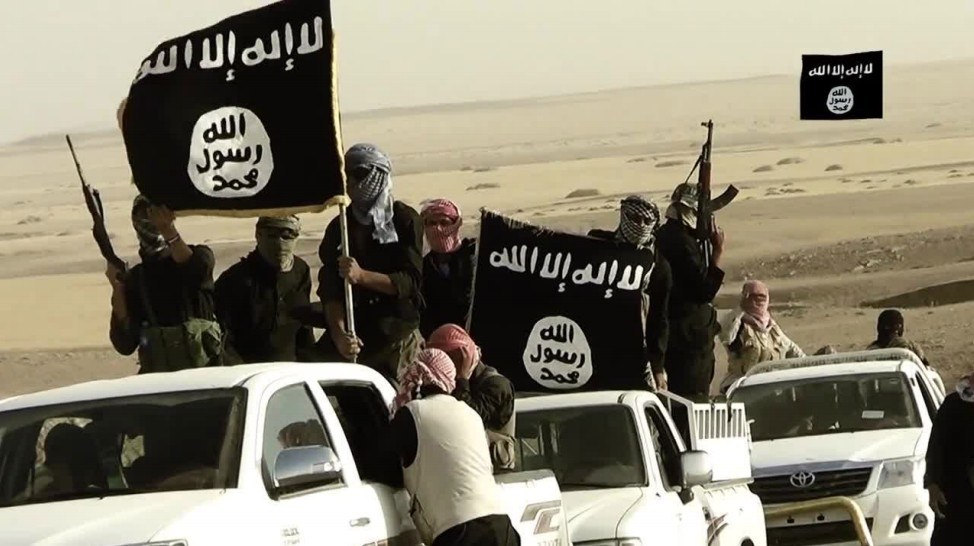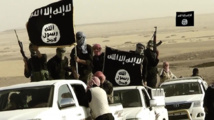Associated Press met and spoke with people who were forced to live under the rule of ISIL group, as well as with those who managed to flee from Syria to live in exile, leaving families remain in Mosul and Rakka. Interviews with them, as well as with analysts, suggest that the group immersed in a serious financial crisis, despite of recent braggery about releasing their own money and creation of a full-fledged state. According to witnesses interviewed by the AP, cities controlled by ISIL are running out of essential commodities. Prices there are very heavy, electricity is provided intermittenly, and wages were cut in half in December.
ISIL’s budget was kicked not only by the decline in oil prices - once the main source of the group’s income - but also by actions of the coalition forces and others, destroying the terrorists’ oil infrastructure, their warehouses and banks. A resident of Raqqa, now forced to live in exile in the Turkish city of Gaziantep, but still in communication with relatives in Syria, told the AP that salaries was cut by 50%, not only for the militants, but for all civil servants, "from judiciary to schools". However, such savings are apparently not enough to buy new weapons. Therefore, the grouping begins to look for new sources of revenue.
Thus, in the last two weeks, ISIL has been demanding that all taxes, water bills and electricity must be paid only in dollars. Earlier, violating strict requirements of the garment resulted in corporal punishments; now, there is a fine for this. According to one of Raqqa’s former residents, he and other Syrians living abroad transfer money to their relatives in Syria, so that they could afford to buy food and pay for utilities. In a short time, meat in Mosul has risen in price by 70%, gas - 25%, sugar - 100%.
In addition, according to analysts polled by the AP, the IG is looking for funding sources in Libya, where the group has not yet bombed and where insurgents continue to receive a substantial increase in their salary in the form of food baskets and free electricity. However, in Raqqa, as reported by people fleeing from there, the ISIL militants are forced to tighten their belts: they are not even given free "Snickers" bars and energy drinks. But, according a fellow at the Middle East Forum Jawad al-Tamimi, who tracks data on the grouping, "it is not something fatal to ISIL" happening now. "I still do not see any internal disturbance. All this is more like a gradual decay and disintegration ", - he said. Meanwhile, some of Syrian respondents of AP reported that discontent already prevails in the ranks of the militants; many have expressed their outrage with the austerity measures. According to these witnesses, the morale sapping is quite noticeable.
Earlier, Financial Times, within a large-scale investigation into ISIL’s activities, painted the grouping’s sources of income in details. As shown by the investigation, extortion, confiscation and collection of religious tax (zakat) provide IG with virtually the same income as the sale of illegally produced oil, which, according to various estimates, brought them more than $ 450 million over the last year.
As FT notes, the more the coalition manages to reduce size of the territory controlled by ISIL, the more rigid requisitions are put on people living in these lands. The militants are issuing decrees banning residents the controlled territories from leaving. Thus, until the locals are able to earn a living, the militants will find ways to rob them.
ISIL’s budget was kicked not only by the decline in oil prices - once the main source of the group’s income - but also by actions of the coalition forces and others, destroying the terrorists’ oil infrastructure, their warehouses and banks. A resident of Raqqa, now forced to live in exile in the Turkish city of Gaziantep, but still in communication with relatives in Syria, told the AP that salaries was cut by 50%, not only for the militants, but for all civil servants, "from judiciary to schools". However, such savings are apparently not enough to buy new weapons. Therefore, the grouping begins to look for new sources of revenue.
Thus, in the last two weeks, ISIL has been demanding that all taxes, water bills and electricity must be paid only in dollars. Earlier, violating strict requirements of the garment resulted in corporal punishments; now, there is a fine for this. According to one of Raqqa’s former residents, he and other Syrians living abroad transfer money to their relatives in Syria, so that they could afford to buy food and pay for utilities. In a short time, meat in Mosul has risen in price by 70%, gas - 25%, sugar - 100%.
In addition, according to analysts polled by the AP, the IG is looking for funding sources in Libya, where the group has not yet bombed and where insurgents continue to receive a substantial increase in their salary in the form of food baskets and free electricity. However, in Raqqa, as reported by people fleeing from there, the ISIL militants are forced to tighten their belts: they are not even given free "Snickers" bars and energy drinks. But, according a fellow at the Middle East Forum Jawad al-Tamimi, who tracks data on the grouping, "it is not something fatal to ISIL" happening now. "I still do not see any internal disturbance. All this is more like a gradual decay and disintegration ", - he said. Meanwhile, some of Syrian respondents of AP reported that discontent already prevails in the ranks of the militants; many have expressed their outrage with the austerity measures. According to these witnesses, the morale sapping is quite noticeable.
Earlier, Financial Times, within a large-scale investigation into ISIL’s activities, painted the grouping’s sources of income in details. As shown by the investigation, extortion, confiscation and collection of religious tax (zakat) provide IG with virtually the same income as the sale of illegally produced oil, which, according to various estimates, brought them more than $ 450 million over the last year.
As FT notes, the more the coalition manages to reduce size of the territory controlled by ISIL, the more rigid requisitions are put on people living in these lands. The militants are issuing decrees banning residents the controlled territories from leaving. Thus, until the locals are able to earn a living, the militants will find ways to rob them.



















